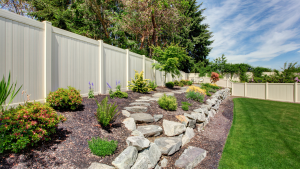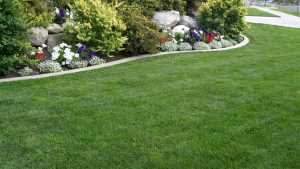You’ve worked hard on your lawn and garden all season, and you want wildlife to grow all around you. However, deer can ruin your landscaping efforts if they visit often. There are a few signs of deer damage that can help you figure out if these animals are coming to your yard.
The first sign that a deer has been in your garden or lawn is deer prints. They will look like two teardrop-shaped depressions next to each other that are two to three inches long. A few tracks shouldn’t be a big deal, but when there are more of them, it’s more likely that grazing will cause serious damage to the landscape. Deer droppings are an ugly sign of a lot of deer, but they make it easy to keep track of where they like to graze. Instead of being round like rabbit pellets, deer pellets are oval. If you are worried about deer on your property, you should remember this common mistake so you don’t blame the wrong animal! If they don’t eat fruits and berries, their pellets tend to scatter when they drop them. If your garden has small fruits and berries, you can expect people to snack on them.
During the winter, deer eat bark, twigs, and almost any other plant that is still alive. If you notice that the trees and shrubs around your yard are slowly losing bark and leaves at about waist height, deer have probably been eating there. Since deer don’t have front teeth, the damage will look like it’s been torn up.
So, what can you do to stop the damage from deer? The best way to keep deer from moving onto your property is to avoid planting things that deer like to eat. During the winter, they don’t care much about what they eat, but you should avoid planting their favorite foods. Some of these are cedar, yew, fruit trees, lilies, hostas, tomatoes, and cabbage. If you can, put the smaller ones where they can’t be seen. Deer don’t like plants with thorns or leaves that are fuzzy or tough.
One other way to keep deer away is to scare them away by making a sudden, loud noise. But deer get into routines when they graze and may get used to the noise, making this method useless. Building a physical barrier is a good idea, but since deer can jump very high, it is best to build a fence that is at least seven feet high.
The most gentle and effective way to keep deer away is to use smells and tastes that they don’t like. Garlic and rotten eggs seem to be two of the most effective ways to keep deer away, and they are easy to use to keep your lawn and garden looking neat and well-kept.





